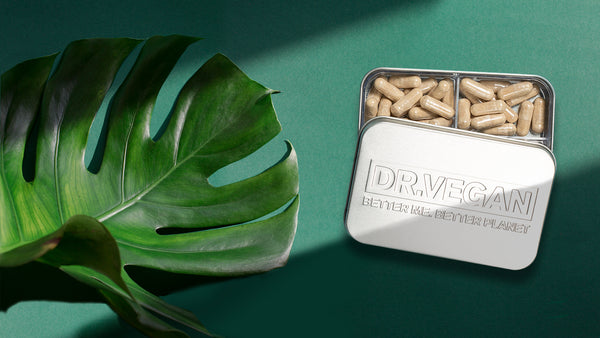Is it OK to go plant-based while pregnant?

So, is a plant-based diet safe to follow during pregnancy? Yes! It is absolutely possible and perfectly safe as long as you pay special attention to your meals to ensure you get an adequate amount of the collection of nutrients needed for a healthy pregnancy.
Through your plant-based pregnancy it's a great idea to check you're getting enough Iron, Zinc, Calcium, Vitamin B12 and Vitamin D, and these four key nutrients below. You also may want to speak to an expert in Vegan Pregnacy for support such as Hannah Whittaker from Bump2Baby nutrition.
Folic Acid
Folic Acid is usually the first vitamin that is recommended if you are planning on having a baby. It’s needed in the early weeks of pregnancy to help prevent neural tube defects.
Understand your diet. Create your free Diet Profile.
For women considering pregnancy, and up to 12 weeks of pregnancy, a daily folic acid supplement of 400mcg is recommended. It's also a good idea to have a diet rich in folates from foods naturally containing the vitamin and from fortified foods.
There are plenty of plant-based foods that are rich in folate, including spinach, kale, broccoli, legumes, nutritional yeast and fortified foods such as breakfast cereals, bread and rice.
Omega-3
As omega 3 is used right from the get-go in pregnancy, a great way to top your prenatal essential fatty acids stores is by consuming rich sources of omega-3 fatty acids on a regular basis.
The European Food Safety Authority suggest an intake of 250 mg per day of the long-chain Omega 3 fatty acids called DHA and EPA (short for docosahexaenoic acid and eicosapentaenoic acid).
The best source of these is from algae or oily fish. If you don’t eat fish you can obtain omega 3 fatty acids from plant-based sources such as avocados, chia seeds, flaxseeds, hemp seeds and walnuts. However, your body takes longer to convert these into the long-chain Omega-3s, so an Omega-3 supplement may be useful.
Choline
Choline is a nutrient that has captured scientists attention in recent years, and this ‘brain-building’ nutrient has been given special attention by paediatricians and health practitioners in order to ensure that pregnant women are getting enough. Learn more about the benefits of choline and where to find it.
During pregnancy, Choline is vital for tissue expansion and has a protective role in the development of the foetal brain. Since our liver can only make a small amount of it, it’s important to get Choline from your diet or a Choline supplement to avoid a deficiency.
A problem for plant-based diets is that most sources of Choline are found in meat and dairy products. However, you can still find a healthy amount of Choline in nuts, soybeans, whole grains and cruciferous vegetables or through a Choline supplement.
Iodine
Iodine plays an important role during pregnancy through its role in healthy cell division, cell metabolism, growth, development, and normal foetal brain development. So it’s important to ensure you have an adequate amount of Iodine before you even enter pregnancy.
If Iodine levels are severely low, it can cause improper function of the thyroid gland which could lead to infertility and could even harm the foetus. The recommended allowance at the preconception stage and throughout pregnancy is 150 micrograms per day.
Your body cannot make its own Iodine so it's really important that we get it from our diet. Many people meet their Iodine requirements from consuming milk and dairy products so being vegan can put you at a higher risk of Iodine deficiency.
Click here to discover your free Diet Profile today.
Getting enough Iodine from a vegan diet can be challenging. Choose plant milk alternative drinks that are fortified with Iodine (look for potassium iodide or iodate on the ingredients label). Iodised salt is a good source of Iodine, but it’s not widely available in the UK and too much salt is associated with greater risk of high blood pressure and strokes.
Seaweed is a concentrated source of Iodine, and some seaweeds can provide excessive amounts, so eating it more than once a week is not recommended, especially during pregnancy. The Vegan Society recommends that the most reliable way for vegans to meet their needs is to take a daily supplement of Iodine, which is generally best obtained via a good Daily Multivitamin.
Written by Riya Lakhani, ANutr
Want to learn more?
We think you'll enjoy reading The most Googled nutrition questions answered.


